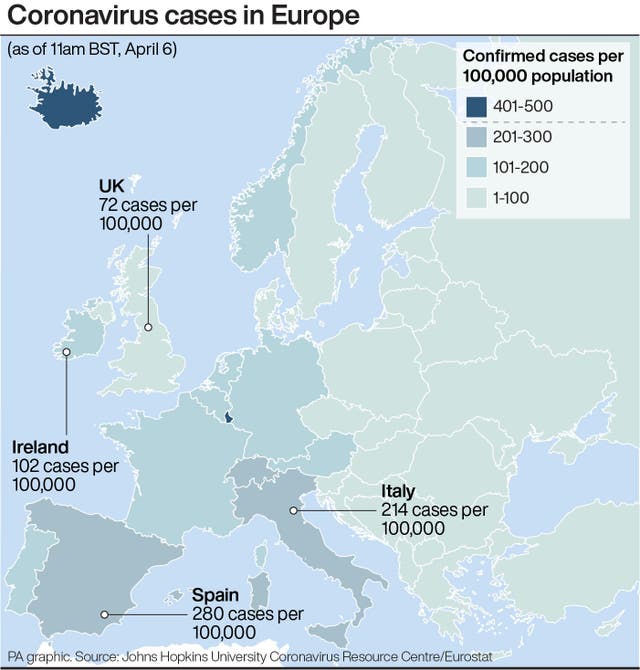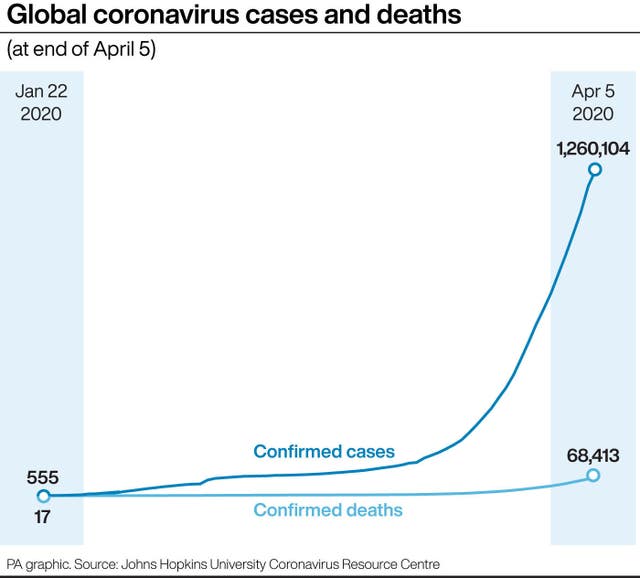The United States is braced for one of its darkest weeks in living memory amid the coronavirus pandemic, as some hard-hit European areas were seeing glimmers of hope.
Italy, Spain and France saw signs that they are flattening the Covid-19 pandemic curve, but still reported hundreds of people dying each day.

Leaders cautioned, however, that any gains could easily be reversed if people did not continue to adhere to strict social distancing measures and national lockdowns.
In Washington, US surgeon general Jerome Adams offered a stark warning about the expected wave of deaths.
“This is going to be our Pearl Harbour moment, our 9/11 moment,” he said.
More than 9,600 people have died of the virus in the United States, and it leads the world in confirmed infections at more than 337,000.
In New York City, the US epicentre of the pandemic, daily confirmed deaths dropped slightly, along with intensive care admissions and the number of patients who needed breathing tubes inserted.
But New York governor Andrew Cuomo warned it was “too early to tell” the significance of the new numbers.

US President Donald Trump later suggested the hard weeks ahead could foretell the turning of a corner.
“We’re starting to see light at the end of the tunnel,” Trump claimed at a White House briefing.
Italy still has by far the world’s highest coronavirus death toll – almost 16,000 – but the pressure on northern Italy’s intensive care units has eased so much that Lombardy is no longer airlifting patients out to other regions.
In Spain, deaths and new infections dropped again on Monday.
The country’s health ministry reported 637 new deaths, the lowest fatality toll in 13 days, for a total of more than 13,000 dead since the pandemic hit.
New recorded infections were also the lowest in two weeks.
“The growth rate of the pandemic is decreasing in almost all regions,” Health Ministry official Maria Jose Sierra said.
Worldwide, more than 1.2 million people have been confirmed infected and nearly 70,000 have died, according to Johns Hopkins University.

The true numbers are certainly much higher, due to limited testing, different ways nations count the dead and alleged deliberate under-reporting by some governments.
More than 263,000 people have recovered worldwide.
In Asia, Japanese officials were considering declaring a state of emergency.
Infections are soaring in the country that has the world’s third-largest economy and its oldest population, but it is still not even among the top 25 hardest-hit nations in the world.
In South Korea, which has been praised for its heavy testing to combat the virus, vice health minister Kim Gang-lip expressed concerns over loosened attitudes towards social distancing that he said are putting the country at potential risk of an infection “explosion”.


















